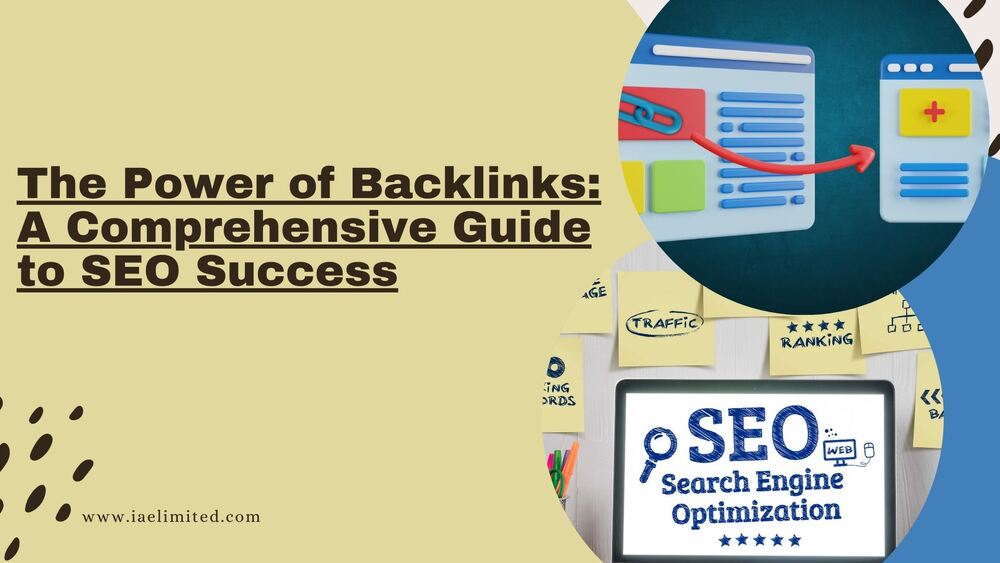
Backlinks, or inbound links, are links that point from one website to another, and they play a vital role in search engine optimization (SEO). Essentially, they act as endorsements for content, signaling to search engines that the linked material is valuable and trustworthy. Here are some key points about the importance of backlinks:
- Ranking Factor: Backlinks are among the most important factors that affect a website’s position in search engine results pages (SERPs). Search engines like Google use them to assess a webpage’s authority and relevance.
- Generally, the more high-quality backlinks a site has, the better it ranks in search results. They serve as “votes” of confidence from other websites, indicating that the content is worth promoting.
- Referral Traffic: Quality backlinks not only boost rankings but also drive direct traffic to your site. When users click links from other sites, they are directed to your content, which can significantly expand your audience. This targeted traffic often leads to higher engagement rates, as visitors from reputable sources are usually more interested in what you offer.
- Credibility Boost: Having backlinks from authoritative websites enhances your blog’s credibility. When respected sites link to your content, it elevates your reputation in the eyes of both users and search engines. This increased trust can make potential customers more inclined to engage with your brand or services.
- Discovery of New Content: Backlinks assist search engine crawlers in finding new pages on your site. When a crawler follows a link from another website to yours, it can index your pages more quickly and thoroughly, improving your visibility in search results. This is especially beneficial for new content that might otherwise take longer to be recognized.
- Improved User Experience: Backlinks can enhance user experience by offering additional resources and context. When users click links that lead to related topics or deeper insights, they tend to spend more time on your site and explore more content, increasing the likelihood of their return.
In summary, backlinks are essential for improving SEO, driving traffic, enhancing credibility, aiding content discovery, and providing a better experience for users.
Understanding Backlinks
Table of Contents
In the realm of search engine optimization (SEO), backlinks are akin to digital endorsements or recommendations. When a website links to yours, it’s essentially saying, “Hey, this website is worth checking out.”
Search engines interpret these links as votes of confidence, and the more high-quality backlinks you have, the higher your website’s authority and ranking in search results.
The Benefits of Backlinks:
- Improved Search Engine Ranking: Backlinks are a significant ranking factor for search engines like Google. The more relevant and authoritative backlinks your website has, the higher it will appear in search results for your target keywords.
- Increased Website Traffic: When people click on backlinks to your website, they are directly visiting your content. This can lead to a significant increase in website traffic.
- Enhanced Brand Authority: Backlinks from reputable websites can boost your brand’s credibility and authority in your industry.
- Improved User Experience: High-quality backlinks can lead users to valuable and relevant resources, enhancing their overall experience on your website.
Factors Affecting Backlink Quality
Not all backlinks are created equal. Here are some factors that influence the quality of a backlink:
- Domain Authority: The authority of the website linking to yours. Backlinks from high-authority websites carry more weight.
- Relevance: The relevance of the linking website’s content to your own. Backlinks from websites with relevant content are more valuable.
- Anchor Text: The text used to create the hyperlink. Using relevant keywords in your anchor text can help improve your search engine rankings.
- Link Placement: The location of the backlink on the page. Backlinks in prominent positions, like the header or footer, may have more impact.
- Naturalness: Backlinks should appear natural and not forced. Avoid excessive linking or spammy practices.
Building High-Quality Backlinks: A Strategic Approach
Building high-quality backlinks requires a strategic approach. Here are some effective methods:
- Content Marketing: Create high-quality, shareable content that naturally attracts backlinks. This could include blog posts, articles, infographics, videos, or podcasts.
- Guest Posting: Write guest posts for other websites in your industry. This can provide opportunities for backlinks and exposure. Learn more about guest posting on this article from blog.hubspot.com.
- Broken Link Building: Find broken links on other websites and offer to replace them with links to your relevant content.
- Outreach and Relationship Building: Build relationships with other website owners and influencers in your industry. This can lead to reciprocal link exchanges or guest posting opportunities.
- Social Media Promotion: Share your content on social media to increase visibility and attract backlinks.
- Directory Submissions: Submit your website to relevant online directories. While this may not provide the most powerful backlinks, it can help increase your website’s discoverability.
- Local SEO Strategies: If you’re a local business, focus on building backlinks from local directories and websites.
Avoiding Negative Backlinks:
Negative backlinks can harm your website’s reputation and search engine rankings. Here are some strategies to avoid them:
- Disavow Tool: Google provides a disavow tool that allows you to tell search engines to ignore certain backlinks.
- Monitoring Backlinks: Regularly monitor your backlinks to identify any harmful or low-quality links.
- Removing Harmful Backlinks: If you find harmful backlinks, try to contact the website owner and request that they remove them.
Measuring Backlink Effectiveness
To track the effectiveness of your backlink building efforts, use backlink analysis tools. These tools provide valuable metrics such as:
- Domain Authority: The authority of the websites linking to yours.
- Referring Domains: The number of unique domains linking to your website.
- Anchor Text Distribution: The keywords used in the anchor text of backlinks.
Advanced Backlink Strategies
- Internal Linking: Linking to relevant pages within your own website can help improve your search engine rankings and user experience.
- Nofollow Attributes: While nofollow links don’t directly pass link equity, they can still be valuable for building relationships and increasing your website’s visibility.
- Link Reclamation: Reach out to websites that have previously linked to your content but may have removed or updated their links.
- HARO (Help a Reporter Out): Sign up for HARO to receive opportunities to be quoted as an expert in your field, which can lead to backlinks.
- Link Baiting: Create highly shareable content that is so valuable or interesting that it naturally attracts backlinks.
The Future of Backlinks
As search engines continue to evolve, the importance of backlinks may change. However, they will likely remain a significant factor in SEO for the foreseeable future. By understanding the principles of backlink building and implementing effective strategies, you can improve your website’s visibility and drive organic traffic.
Additional Tips for Backlink Building

- Be patient. Building high-quality backlinks takes time.
- Focus on quality over quantity. A few high-quality backlinks are better than many low-quality ones.
- Be consistent. Regularly create new content and engage in outreach to build backlinks over time.
- Track your progress. Use backlink analysis tools to monitor your progress and identify areas for improvement.
By following these guidelines and staying updated on the latest SEO trends, you can effectively leverage backlinks to boost your website’s visibility and achieve your online marketing goals.
In case you missed it, we recently published a post on, Top 10 SEO Mistakes to Avoid: A Comprehensive Guide.





